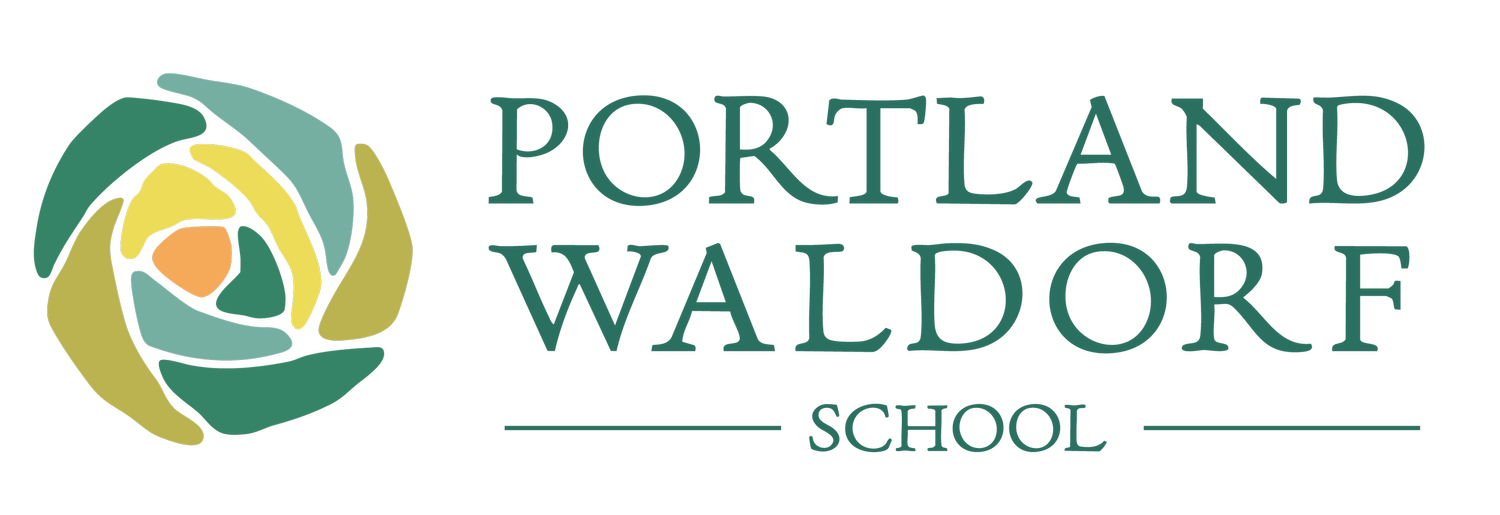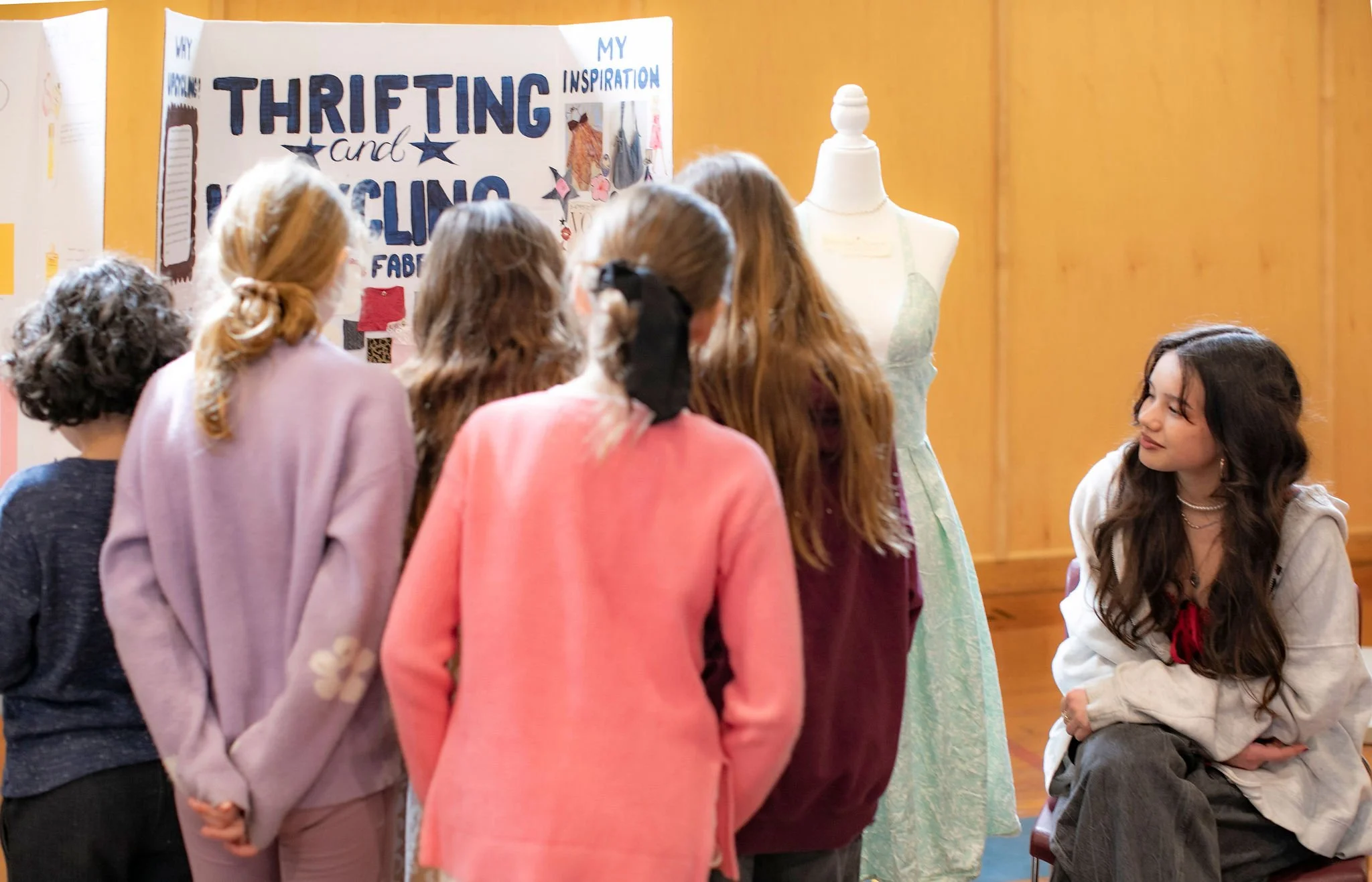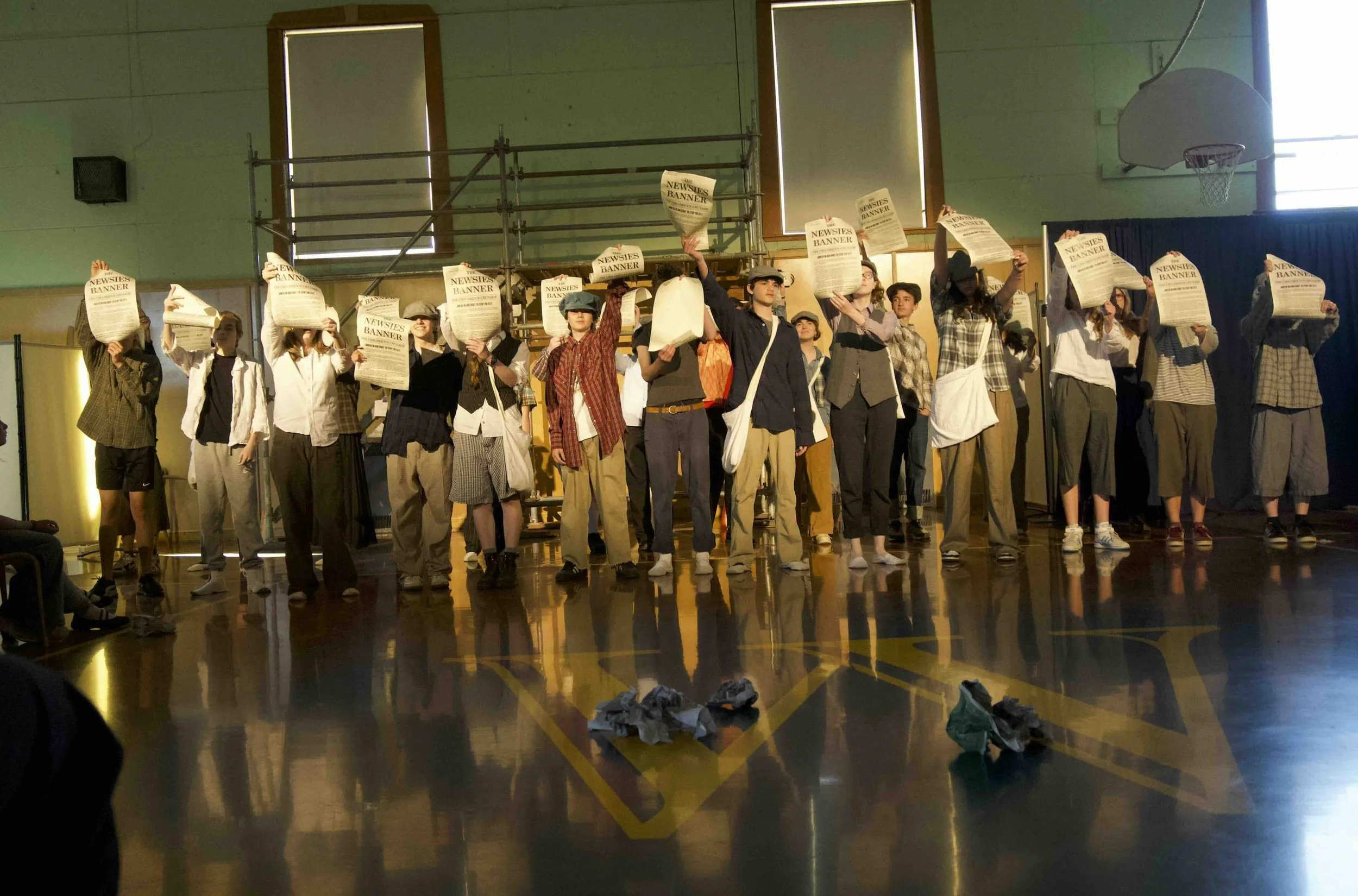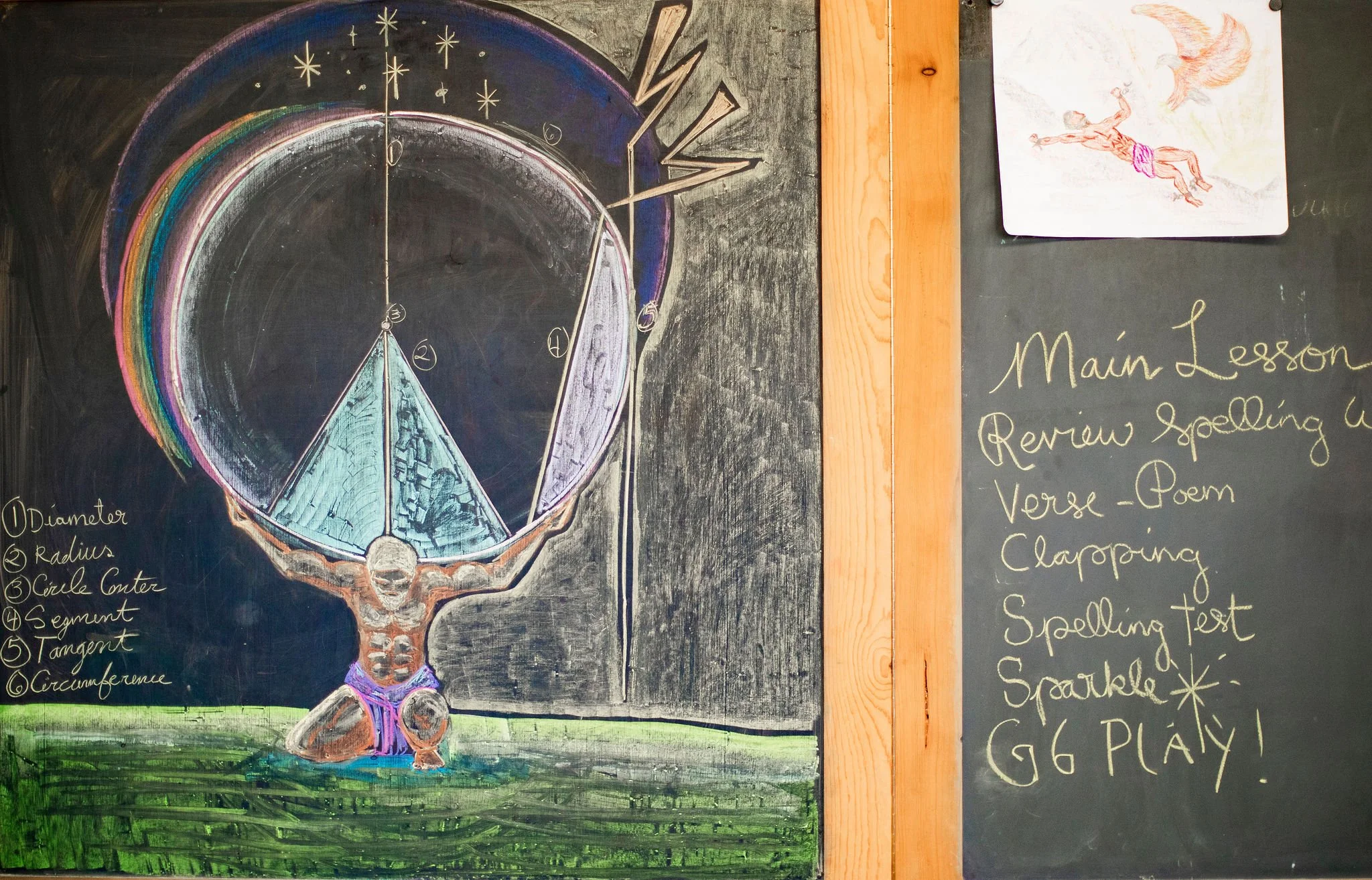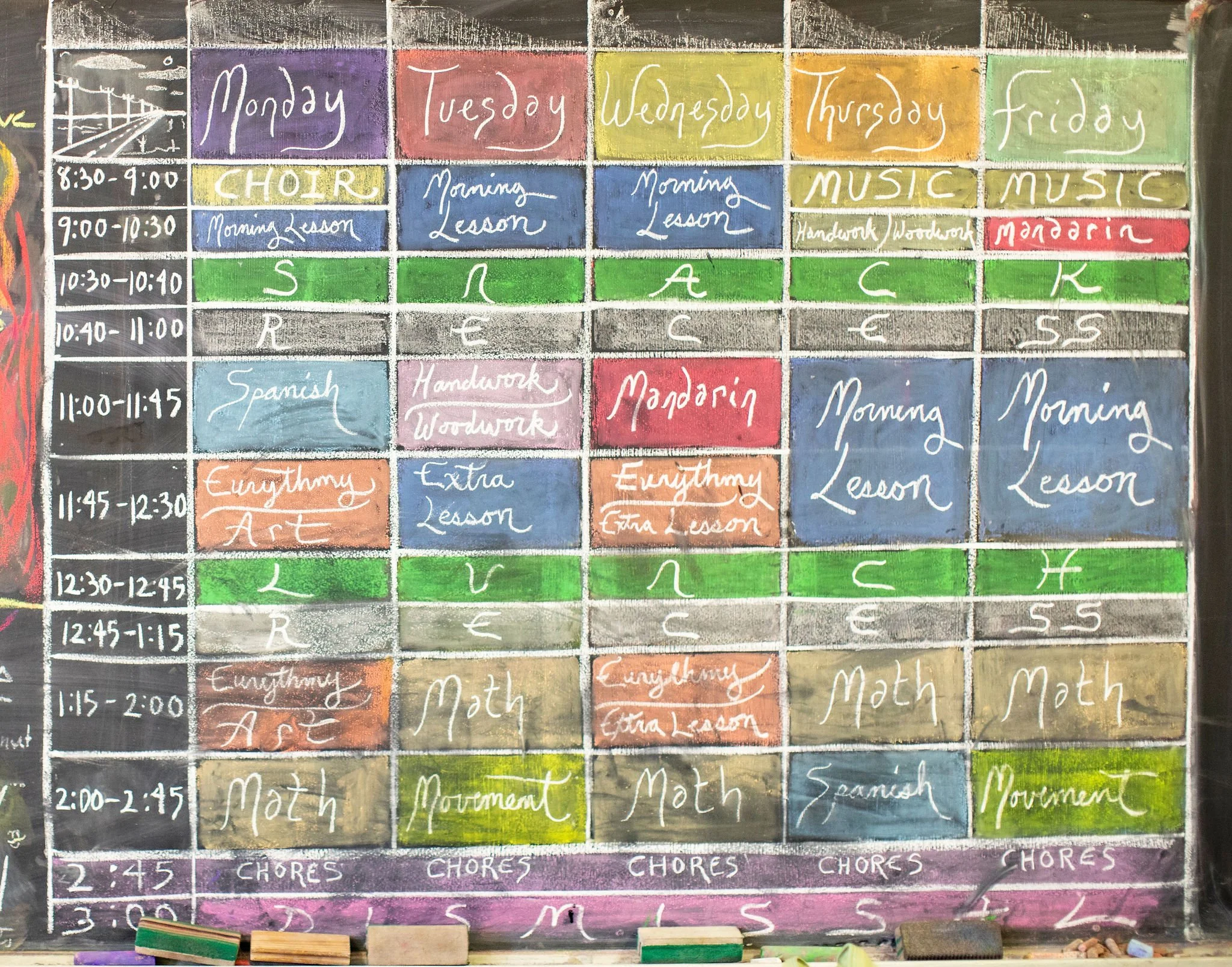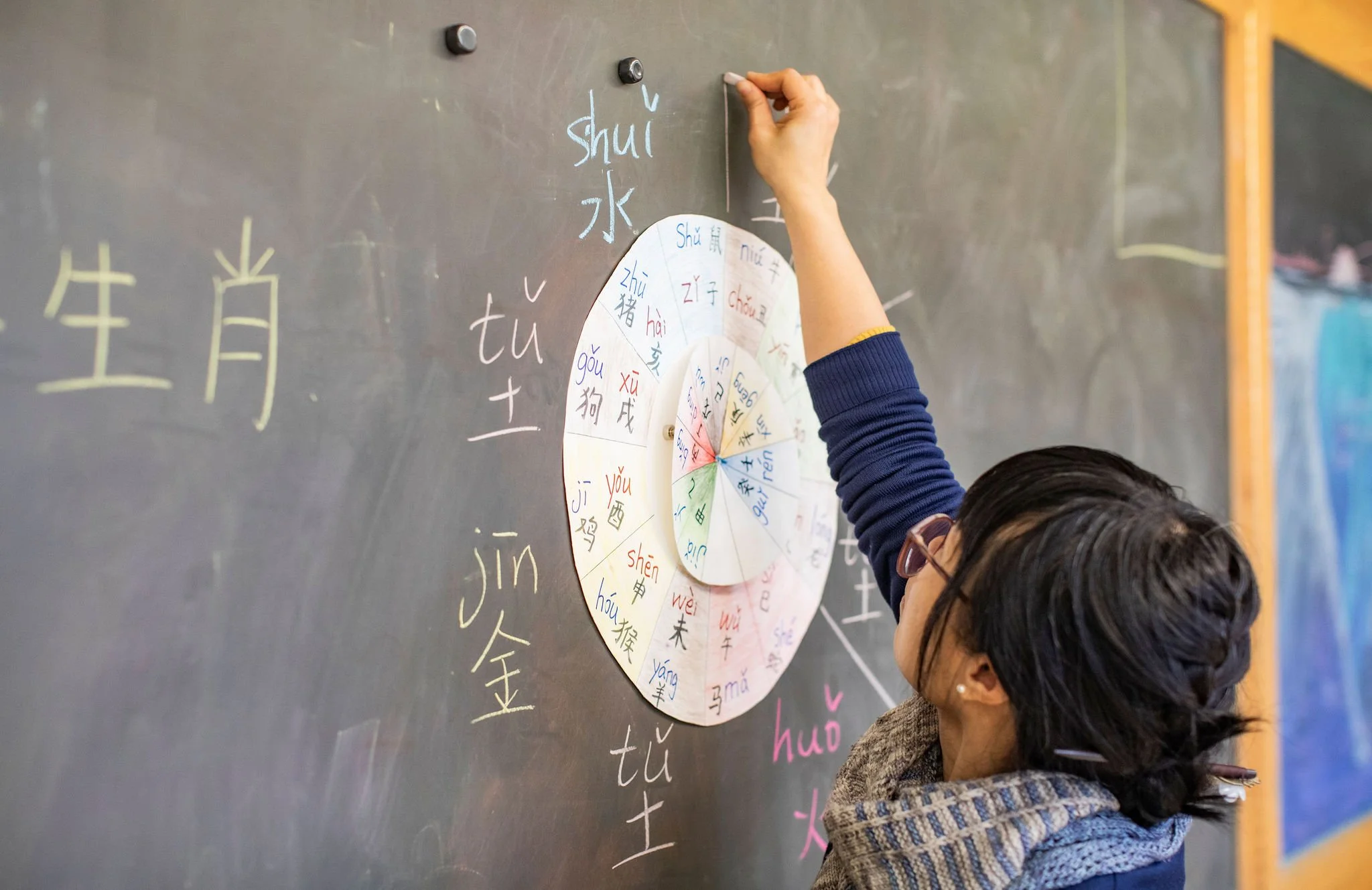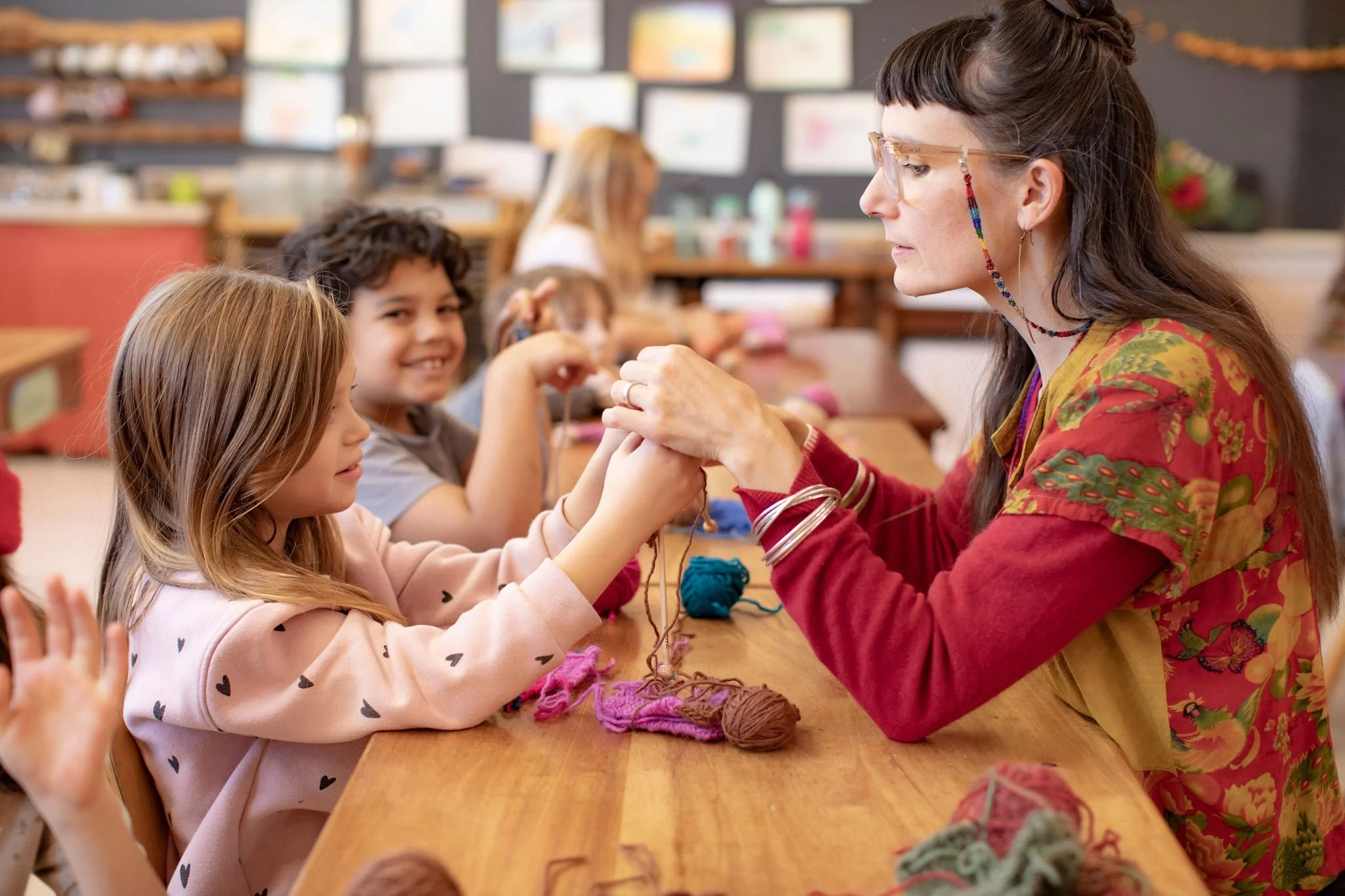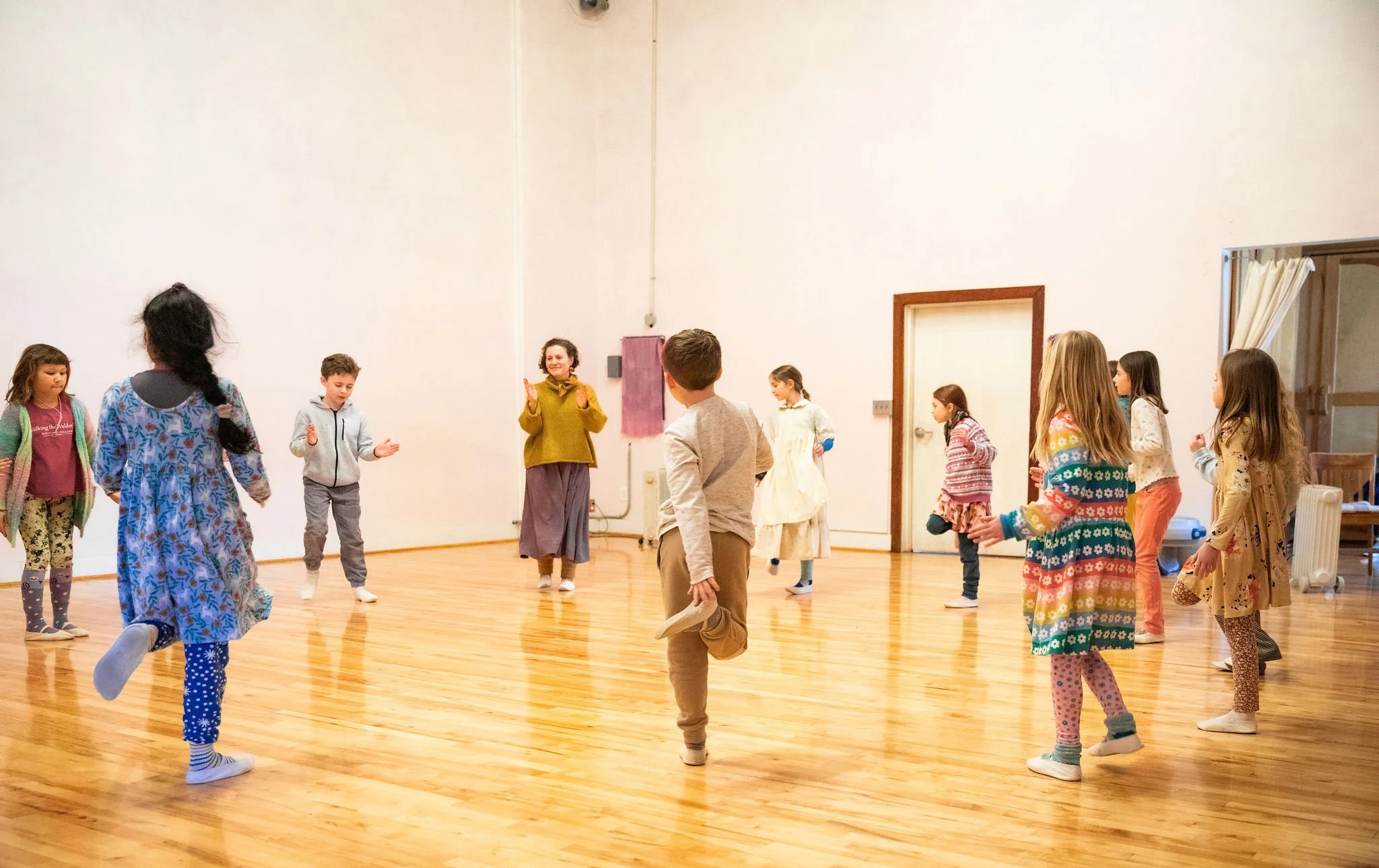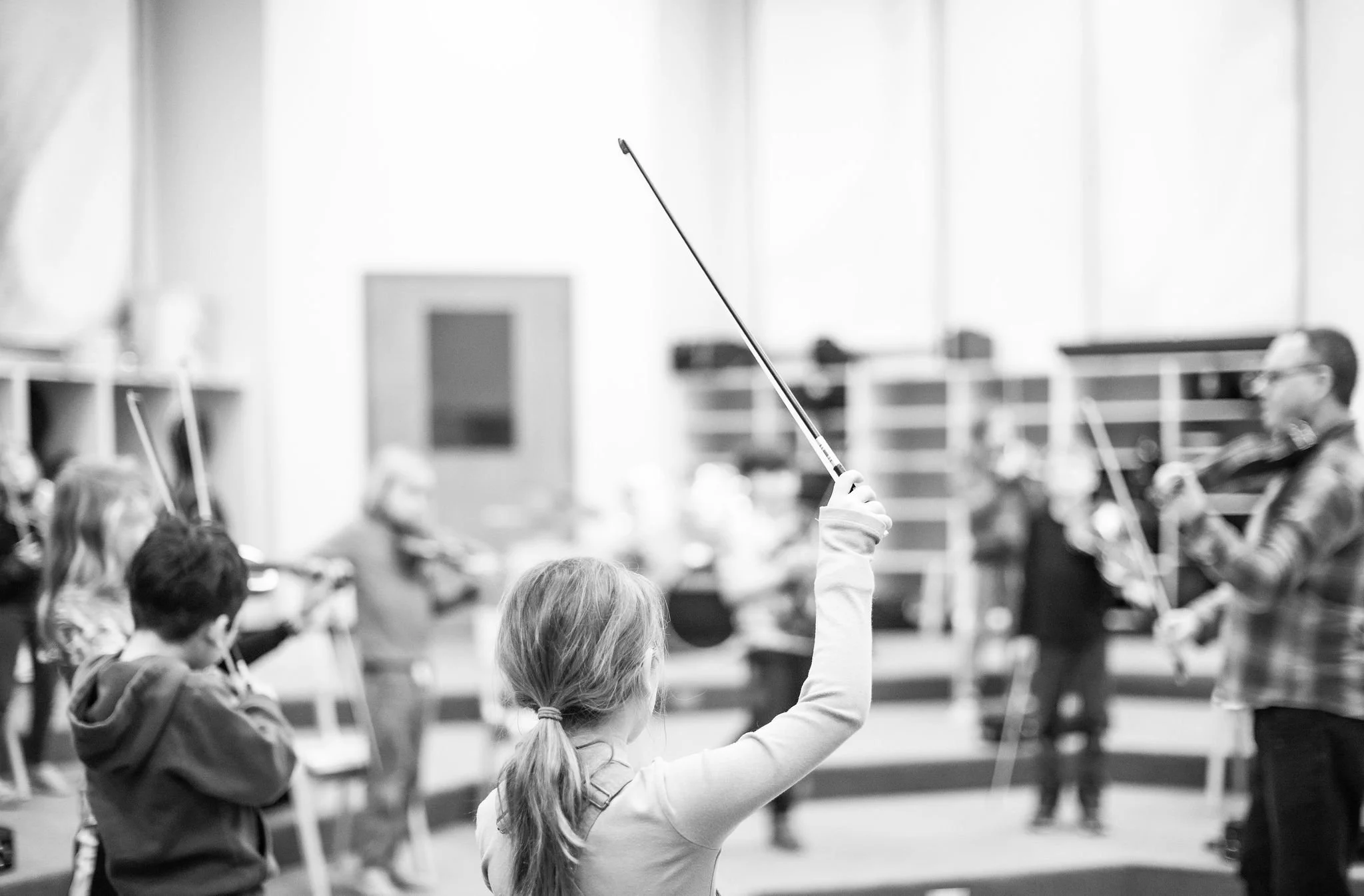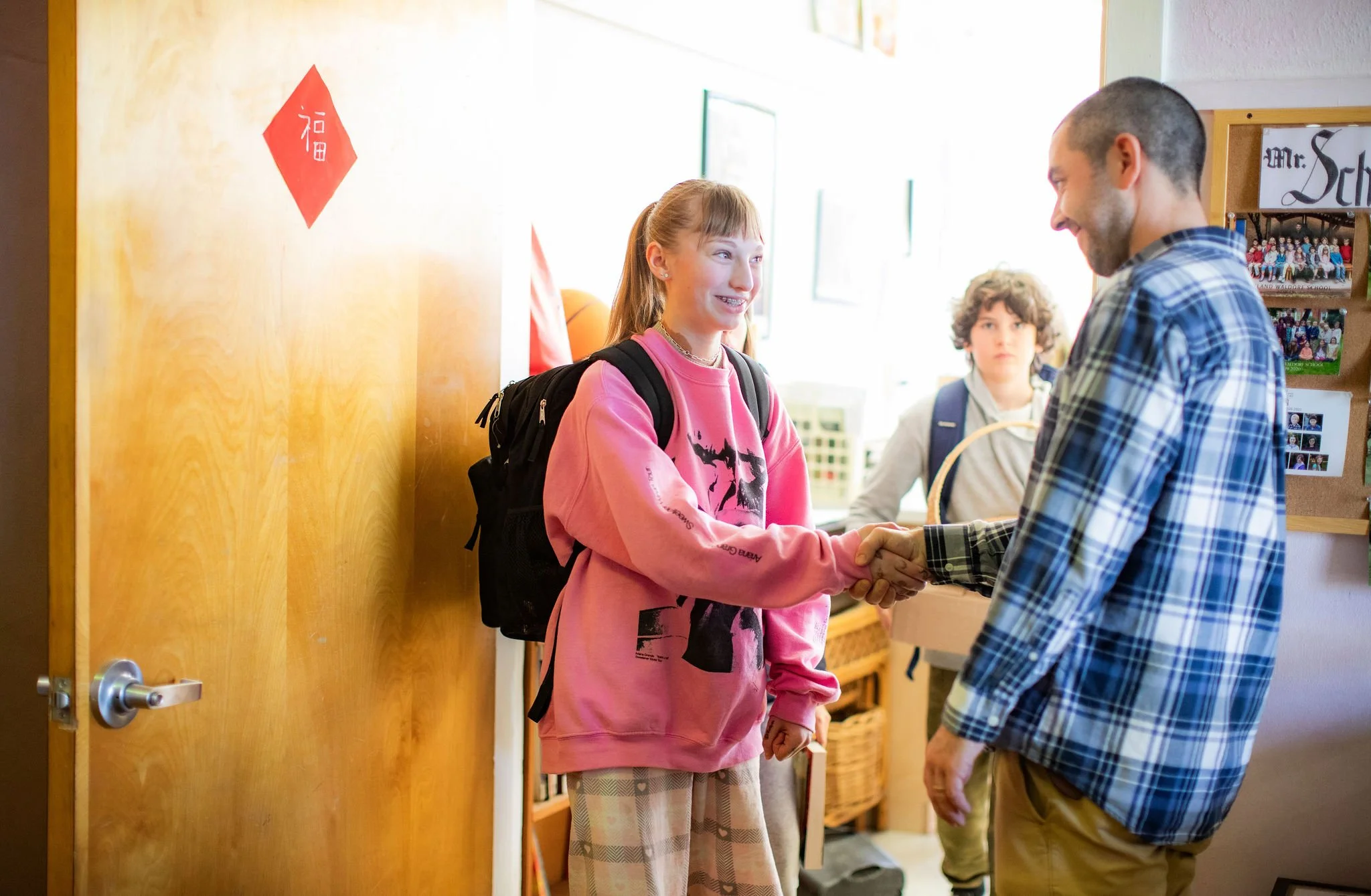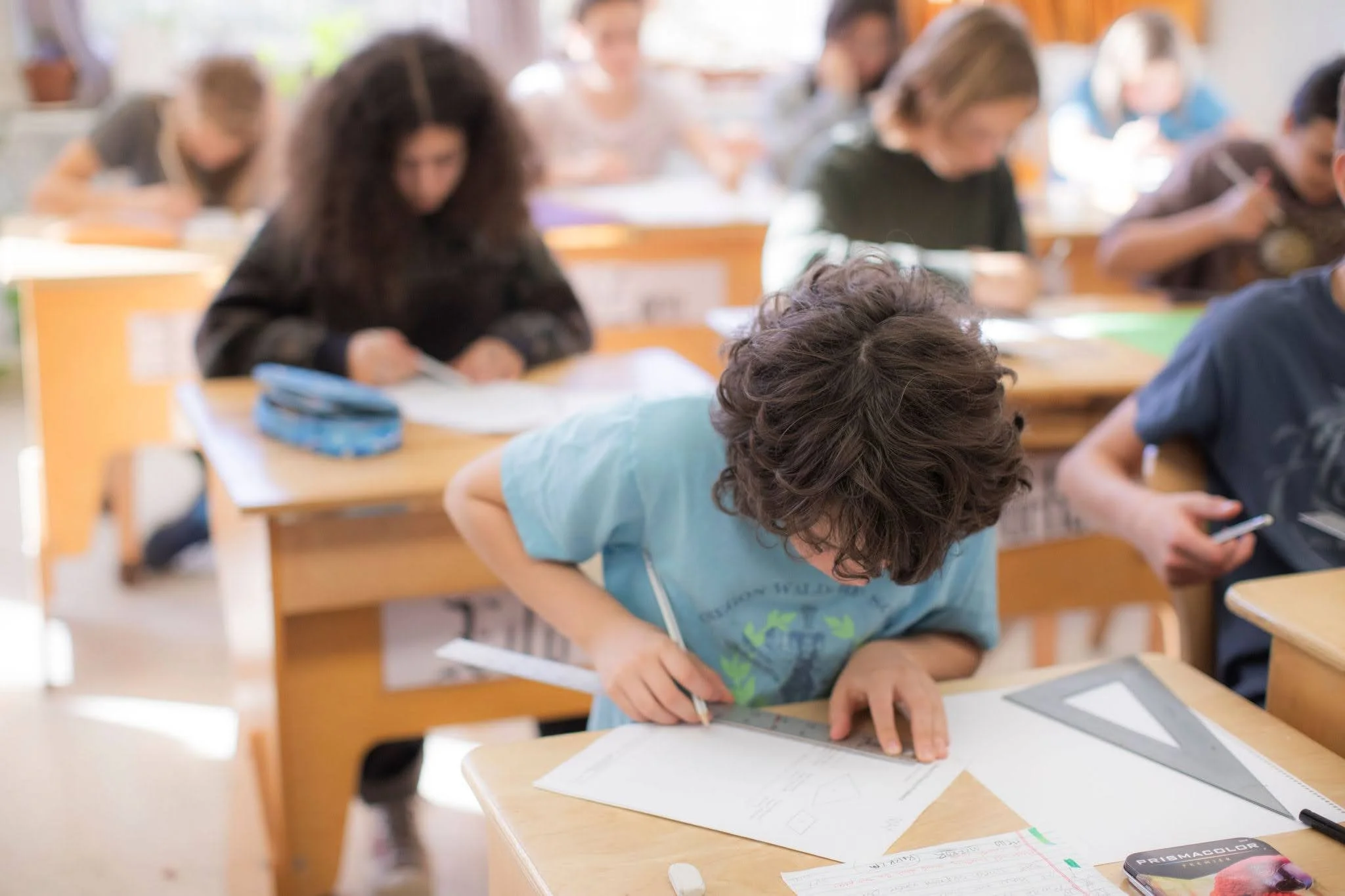
Middle School

In the middle school years, grades 6 -8, Waldorf students enter a phase of deeper introspection, mirroring the self-awareness and emotional complexity that emerge during early adolescence. This shift is met with thoughtful guidance from their teachers, who continue to hold the whole child—intellect, emotion, and will—while introducing a more rigorous academic curriculum designed to meet their expanding capacities.
By seventh grade, students display a growing curiosity about the world and a budding ability to think critically and independently. Subjects such as chemistry, physics, algebra, and Renaissance history are brought to life through hands-on experiments, artistic renderings, and narrative storytelling, while writing, drawing, and speech work deepen their understanding and personal engagement. Social dynamics take on new importance, and teachers support healthy group interaction through collaborative projects, artistic expression, and open dialogue.
The 8th Grade Project
Eighth grade marks a year of culmination and readiness. Strengthened by years of practice in organization, presentation, and independent thinking, students undertake a year-long, self-directed research project—the capstone of their lower school journey.
This project weaves together academic research, creative expression, and practical application, and is presented to the broader school community through written, oral, and visual components.
The Culmination of Elementary School
The eighth-grade year concludes with the 8th grade research project, in-depth class play, and a class trip, offering time for reflection and bonding as students honor the completion of their shared journey and prepare, with confidence and purpose, for the transition into high school.
Our well-rounded, holistic education is truly whole-child—developing their inner life as much as their social, academic one. Learn more about how we teach.

Grades 6 - 8 Main Lesson Block
A unique component of Waldorf—and now more frequently used in project-based learning programs—is the main lesson block. All children begin the first few hours of their day with their Class Teacher, immersed in a subject or theme, which continues for two to three weeks.
The following chart is a rough outline of class curriculum. Freedom in teaching is a core pedagogical philosophy and teachers are encouraged to innovate and explore within the curriculum to best fit the needs of the class. Click on the PDF below to enlarge.
Daily Rhythm at PWS
-
Waldorf education is rooted in the spiritual and developmental philosophy of Rudolf Steiner’s Anthroposophy, which emphasizes the profound inter-connectedness of human beings with both the natural world and the spiritual realm. Learn More
-
PWS is the most established Waldorf School in the Portland Metro Region, and the only Nursery through High School Program in the Pacific Northwest. Our strong roots allow for innovation in the classroom, while our steadfast commitment to Eurythmy underscores our dedication to Anthroposophy. Learn More
-
At Portland Waldorf School, we seek to create an inclusive community where our differences are both valued and acknowledged. Celebrating our shared humanity and striving to be our best selves is a priority. Learn More
-
Our entire school campus is a cell-phone free zone. Technology, like daily access to laptops and instructional presentations, is used only in the high school as a tool to help adolescence achieve their specific goals purposefully. Read more
-
Educational Support at Portland Waldorf School is thoughtfully interwoven into the curriculum, honoring each child’s unique developmental journey. From early childhood through sixth grade, our Educational Support Teacher and Administrator works closely with students using a holistic blend of integrative movement, artistic exercises, and academic guidance - methods that nurture both the will and the capacity to learn with purpose and joy.
In middle school, students are supported by an Educational Support Teacher and curriculum geared toward the growing capacities of early adolescence, while high school students are supported by a robust Life Skills curriculum and program aimed at addressing the needs of the growing adolescent. Both programs build confidence, and help with making informed decisions, problem-solving, communicating effectively, and developing coping and self – management skills that will help them lead a healthy and productive life.

